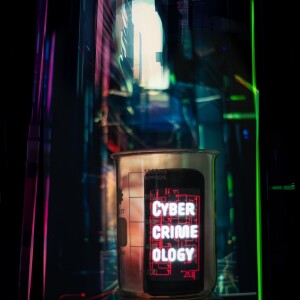
Tearing down the cross-disciplinary wall : Creating a reference on Method, Ethics & Data for Research
 2021-12-01
2021-12-01
About our Interview Guest:
Dr Anita Lavorgna
https://www.southampton.ac.uk/sociology/about/staff/ai11n14.page
Papers and Publications Mentioned in this Episode:
Lavorgna, A., & Holt, T. J. (Eds.). (2021). Researching cybercrimes : methodologies, ethics, and critical approaches. Palgrave Macmillan. https://doi.org/10.1007/978-3-030-74837-1
This book contains the following major sections:
- Knowledge Production and Research Datafication in Cybercrime Research
- Methodologies and Strategies for Cybercrime Research
- Geographies and Cultures of Ethics in Cybercrime Research
Lavorgna, A., & Ugwudike, P. (2021). The datafication revolution in criminal justice: An empirical exploration of frames portraying data-driven technologies for crime prevention and control. Big Data & Society, 8(2), 20539517211049670.
https://journals.sagepub.com/doi/pdf/10.1177/20539517211049670
About our Expert Guest:
Dr. Joshua James
https://dfir.science/
https://www.youtube.com/DFIRScience
What we learned:
What is the difference between digital evidence and physical evidence for investigators ?
Digital evidence always requires active interpretation because it is an abstract series of electrical symbols. Because of this, the interpretation is very important but very difficult. Unlike physical evidence, it can be tested and analyzed indefinitely because it can be copied perfectly, and the accuracy of copies can be verified with hashes.
Other:
This episode's track is called 'surfing on white noise'. Not all of the songs for podcast episodes get a name, but it did this time.
More Episodes
 2023-06-01
2023-06-01
 2023-01-15
2023-01-15
 2023-01-01
2023-01-01
 2022-12-15
2022-12-15
Create your
podcast in
minutes
- Full-featured podcast site
- Unlimited storage and bandwidth
- Comprehensive podcast stats
- Distribute to Apple Podcasts, Spotify, and more
- Make money with your podcast
It is Free
- Privacy Policy
- Cookie Policy
- Terms of Use
- Consent Preferences
- Copyright © 2015-2024 Podbean.com




